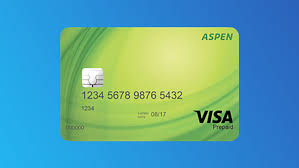The Aspen Card: Innovations in Prepaid Card Technology

Introduction
The Aspen Card has emerged as a significant player in the prepaid card market, providing consumers with robust financial management solutions. As financial technology continues to evolve, products like the Aspen Card cater to an increasing demand for flexibility, convenience, and control over personal finances. With the rise of digital payments, understanding the features and potential impact of prepaid cards like Aspen becomes increasingly important for consumers looking to enhance their spending habits.
What is the Aspen Card?
The Aspen Card is a prepaid Visa card designed to offer an alternative to traditional banking services. It allows users to load funds onto the card and use it for purchases wherever Visa is accepted. Unlike debit cards linked to checking accounts, the Aspen Card is not linked to any bank account, promoting better budgeting and financial discipline.
Key Features of the Aspen Card
1. No Bank Account Required: Users can manage their finances without needing a traditional bank account, making it an attractive option for those who may be underserved by conventional banking systems.
2. Direct Deposit Capabilities: The Aspen Card supports direct deposit, allowing users to receive their paychecks or government benefits directly onto the card, streamlining cash flow.
3. Online and Mobile Management: The card features an intuitive mobile app that allows users to check balances, review transactions, and transfer funds easily, enhancing the user experience.
4. Security Features: The Aspen Card includes built-in fraud protection, and in the event of loss or theft, users can freeze their cards instantly within the app.
Recent Developments
In recent months, the Aspen Card has expanded its offerings to include enhanced rewards programs and cashback options for frequent users. These developments are positioned to attract a broader customer base, particularly among younger consumers who prefer digital financial solutions. According to industry analysts, the prepaid card sector is expected to experience significant growth, with products like the Aspen Card leading the charge. Market research indicates that prepaid card purchases are likely to reach £7.5 billion by 2025.
Conclusion
The Aspen Card exemplifies the shifting landscape of personal finance management, catering to modern consumer needs with its flexibility, convenience, and innovative features. As digital payments become increasingly prevalent, products like the Aspen Card provide consumers with alternative solutions that promote financial independence. With its recent enhancements, the Aspen Card is well-positioned to play a pivotal role in the future of prepaid finances, potentially shaping how a new generation approaches spending, saving, and budgeting effectively.









